Feed aggregator
The Inheritance: Chapter 6 Part 2
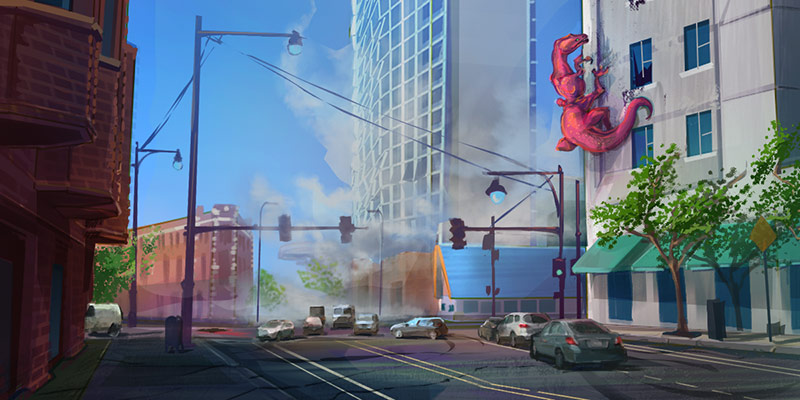
The stone bridge stretched in front of me. It was only twenty-seven yards long, but it felt like a mile. I shuffled across it, one foot in front of the other, my body weak and exhausted, and poor Bear heavy like an anchor in my arms. She was still breathing. I felt her every ragged breath. She was shivering and sometimes she would yelp, but she was still alive.
Almost there.
One step at a time. Almost made it.
Just a little further.
The little cave gaped in front of us. It was a nearly circular depression in the rock, about fifty feet across, its walls smooth, its floor empty.
I tried to set Bear down, but my legs gave out, and we both collapsed. I pulled myself upright and unhooked Bear’s leash from around my neck. Three stalker hearts tumbled to the ground. I had cut them out along the way, strung them onto the leash like fish, and then I put that grisly necklace around my neck. It was the only way I could carry it.
I chopped one heart into small pieces. My hands felt so heavy and clumsy. I scooped a handful of stalker stew meat and shoved it in my mouth.
It burned like battery acid.
I swallowed. Fire sliding down my throat. I chopped the meat smaller. The last thing I needed was to die choking on stalker’s heart.
The pieces of raw flesh landed in my stomach like rocks. My hands trembled. I retched and forced it back down.
I’d managed to down one and a half hearts before the shivers came. Cold clutched at me. My teeth chattered, my knees shook, and I could not get warm. I slumped against the cave wall, shuddering. Bear trembled, turned, and crawled to me.
Tears wet my eyes.
Bear slumped against me and rested her head on my thigh. I petted her. We shivered together. Time stretched, each moment sticky and viscous.
The shivers came in waves now. They washed over me, broke into stabbing pains, faded, and came again.
I had to stay awake. Something told me that to sleep was to die.
I shook Bear. She looked at me with her warm eyes.
I forced my quivering lips to move. “You have to stay awake.”
The shepherd looked at me.
“Stay with me. I’ll tell you a story. You were born into this new age. Your parents were probably born into it as well. You don’t know but it didn’t use to be like this. It used to be… nice.”
I stroked her fur with trembling fingers.
“I remember when the first gates opened. The government called them anomalies back then. One of them was right downtown. The military cordoned it off. Shut down half of the business district.
“At first, everyone was alarmed. There was news coverage, and theories, and the markets crashed. But the gate just sat there, not doing anything. Roger and I drove by to look at it. It was huge. This high-rise-sized, massive hole in the middle of the city, swirling with orange sparks, strange roots and branches twisting along its boundary, just out of reach. I remember feeling this overwhelming anxiety. Like looking at the tornado coming your way and not being able to do anything about it.
“I asked Roger if we should move. And he said, ‘Let’s talk about it.’ Roger was my husband and my best friend. Neither of us got along with our parents. I have no siblings, and he didn’t talk to his brother, so it was the two of us against the world. We discussed it on the way home. Our jobs were here. We’d just bought the house two years before. Tia was doing well in school. Roger’s company was twenty minutes from the site, and I was north of it, so if something happened, we’d have time to get out. We decided to stay.
“For two months the gate just sat there. People stopped talking about it, except to complain about the traffic. Then one day – it was a Monday. I don’t know why crap like this always happens on Mondays – one day, I had this long Zoom meeting with the San Diego office, trying to sort out the new advertising campaign. I kept hearing raised voices and then San Diego went offline.
“I came out of my office. Imagine the conference room crammed with terrified people, and they are all staring at the screen, glassy-eyed and completely quiet. There was a newscast on tv, and the journalist sounded so high-pitched, she was squeaking like a terrified mouse. The anomaly had burst and vomited a torrent of monsters into the city. Downtown was a warzone. Bodies torn apart, cars upside down, and creatures that had popped straight out of a nightmare streaming across the screen…”
I remembered the burst of hot electric panic that shot through me. I knew in that moment that whatever plans we made and the future we thought was coming, had just died, smashed to pieces with a hammer of an existential threat.
“I stumbled away from the room and called Roger. He answered right away. He said, ’Pick up the kids and go home. Straight home, Ada, no stops. I’ll get there as soon as I can.’”
My eyes had grown hot. I swiped the tears off with the back of my forearm. My fingers were stained with stalker blood, and I didn’t want it in my eyes.
“These are angry tears. The fucked up thing is, I remember his voice, Bear. I remember how he sounded. Strong and sure. And I miss that. I miss that voice, I miss the old him, and he is a fucking shithead, and I will never let him back into our lives, but there it is.”
I swallowed and checked Bear. She looked at me. Still alive.
“I left the office. The streets were choked with cars. I’m on the corner of Grace and Broadway, right by that pancake place, and a cop is in the middle of the intersection, and this herd of people just tears out of nowhere and stampedes down Grace. The crowd runs past, and the cop is on the street on his back, not moving. I saw that man being trampled to death. Then a body falls on the street from above. I look up, and there are six legged things crawling on the building to my right and yanking people out of the windows, and up ahead, just past the IHOP, there is a high-rise apartment building. And it shakes, Bear, and then people start raining from it, jumping in desperation and just smashing onto the street. And I know it’s about to fall, so I jerk my wheel right, and tear down Grace Street in the direction the stampede had come from, because I have no place to go, and something tells me not to follow the crowd. It was hell on Earth, Bear. I don’t know to this day how I got out.
“I picked up Tia, made it to Noah’s daycare, grabbed him, and drove home on autopilot. At some point we passed Target, and it was on fire. We get to our house and huddle in the bedroom on the bed. The kids are scared, so I turn Netflix on and for some reason it is still streaming despite the world ending. We watch and wait.”
I sat in that bedroom and thought what life would be like if Roger died, and every time I imagined losing him, it felt like someone had cut my soul with a knife. Until today, those were the worst two hours of my life.
“Finally, I hear the code lock, and then Roger walks into the bedroom, wild eyed, disheveled, but alive.”
The relief had been indescribable.
“I hug him, but he doesn’t hug me back. He just stands there, stiff. I thought he was in shock. I make some frozen pizzas, we eat, and we stay with the kids watching Netflix. Roger is distant. It’s like he’s gone into some inside place where nobody is welcome. At some point he leaves the bedroom. I wait until the kids fell asleep, check my phone for news, and then look for him.
“He is sitting on our front porch. He has a pack of cigarettes, and he is chain smoking, one after another. He quit when I was pregnant with Tia. Ten years later, that fucking pack still bothers me. I didn’t make him quit. He chose to do it. Either he had a secret pack – and who keeps a hidden pack of cigarettes for 6 years? – or he’s been smoking on the side and hiding it from me. Why?
“Anyway, I tell him what I saw on my phone.”
That conversation was branded into my memory. I could recite it word by word and in an instant I was right there, back on that porch, with the night encroaching onto the city and the blaze of orange in the distance, where Target was still burning hours later.
“They are saying that the anomalies are gates that lead to some other world or dimension. There are twelve gates in the US. Our outbreak is fifteen percent contained. They think they’ll have it under control in forty-eight hours.”
“Nothing is under control.” His voice was almost a snarl.
I reached out to take his hand.
He shifted away.
“I’m so sorry,” I said. “I don’t know what happened, I don’t know what you saw, but I’m so sorry.”
“I took 90 home,” he said. “The traffic stopped. Everything stopped. And then the things came. They went after the ones who got out of their cars first. Then they figured out that we were in the cars. I saw them rip a man apart right in front of me. They threw him on my car. His guts fell out of his body onto the glass. His intestines were sliding on the windshield, and he was still alive. I just sat there and watched him die.”
Roger stabbed the cigarette out on the step, crushing it.
“I sat there like that for three hours, waiting for them to find me. I didn’t know if you and the kids were dead or alive. I didn’t know if you made it home or if you were stuck like me. And the whole time I had this voice in the back of my head telling me that I needed to get the fuck out and take care of my wife and kids. I needed to nut up, get out of the car, and go find you.”
Oh my God. “You made it home. That’s all we wanted.”
He didn’t look like he heard a word I said.
“And then I thought, what if you were already dead? What if I never found you? And you know what I felt?”
I couldn’t tell if he wanted an answer. “No.”
He looked at me, and his eyes seemed feverish. “I felt relief.”
“What?”
“I felt relief. A burden lifted.”
The hair on the back of my neck rose. “You don’t mean that.”
“I do. Adaline, why would I lie about this now?”
I stared at him, stunned. What do I do with this? How do I fix it?
“The world is ending. This right here…” He held his hands out and circled the street. “This is done. It’s over. It’s over for all of us.”
“I think you’re still in shock.”
“Maybe. But I see things very clearly now. We are living on borrowed time. There will be more of these holes. They’re not just going to give up. We can’t beat them. I don’t know how much time we have left. Six months, a year, a week. Nobody knows.”
I’d gone strangely numb. A part of me knew he was talking and making words, but none of the sounds made any sense.
“I’m going to live whatever time I have left on my own terms. Doing what I want.”
He fell silent and looked at me. This was the part where I had to say something.
My voice came out wooden. I was so calm, and I had no idea why. “And what is it you want, Roger?”
“Not this.”
“Ah.”
“Not anymore.”
“Is there room for me and the kids in this new life on your terms?”
“No.”
The word lashed me.
“We’ve been together ten years. If you don’t want to be married, that’s fine, but you don’t get to just quit being a father. The kids have known you their entire lives. They won’t understand, Roger. They need you. I need you.”
“It’s not about you or them. This is about me. I need something else.”
“Tia loves you. Noah adores you. That little boy can’t wait for you to come home. Every day he does a little dance when he sees your car in the driveway. You know what Tia told me while we were waiting for you? She said, ‘Don’t worry Mom, Dad will kill all the monsters.’”
Roger shook his head. “I can’t. I can’t kill any monsters. I didn’t save anyone. I just froze. And I’m not going to spend the rest of my life feeling like a coward.”
“So, you’re just going to abandon us? To whatever happens?”
A hint of something cold and vicious twisted his face. “I have a right to be happy. For however long I have left. I’m going to grab my happiness and hold on to it while I still can. This is done. We are done.”
“What am I supposed to tell the kids?”
“Whatever you want.”
He got up and went inside.
“And now you know how my marriage ended, Bear. I’ve had a decade to think about it. I understand it better now. I was able to drive away from the slaughter. I escaped. He couldn’t. He just sat in that car stuck and waiting to die, and it must’ve occurred to him that he was doing that exact thing in his life. He must’ve realized something about himself that neither he nor I knew until that moment.”
I stroked Bear’s fur.
“He’s down in Puerto Rico. He owns a boat and takes tourists out to the reefs to snorkel with manta rays. He is exactly where he wants to be. And until today, I was where I wanted to be. I manifested as a Talent three years after that first gate break. Yes, I got this job for benefits and pay, because I have bills and kids, but there are other ways to earn money. I do it because every time I find adamantite or aetherium, it makes us a little stronger. It gives us a better fighting chance to repel this invasion, and I will keep finding this shit until all the breaches are broken and all the gates are closed, so my children can have a safe, boring future.”
I realized that I was snarling and took a deep breath.
“I don’t blame Roger for the divorce. I blame him for being a shit father. I’ve tried, Bear. I’ve sent emails, I texted, I offered phone calls. He didn’t respond. The only communication from him was through the child support payments. That’s how I knew he was still alive.”
Another shudder twisted me.
“He works as little as possible, so he makes just enough to survive and maintain the boat. At first he was sending $200 a month, then $100 per month, then he stopped. I kept offering to send the kids to visit him or inviting him to visit us, and he cut that off. He said he didn’t want to see them. I finally had enough and had my lawyer email him an affidavit to relinquish his parental rights. I thought it would shock him into having a relationship with our kids. It came back as a scan in twenty-four hours, attached to a blank email, signed, notarized and witnessed by two people. He wanted to get rid of Tia and Noah that much.”
I gritted my teeth.
“I didn’t tell the kids, but I have the Death Folder on my desktop, with insurance, and the will, and all that crap. Tia knows about it, and that affidavit is in there. Once my death is announced, they will learn that their father doesn’t want them. My children will think they don’t have anyone left in this world. People break promises all the time. Roger promised to love me. Melissa promised to be my friend. London promised to protect me.
“Promises must be kept, Bear. Especially to children. I promised Tia I wouldn’t die in this hellhole and I meant it. We are going to survive. We will get out of here if I have to crawl on my hands and knees all the way to that damn gate.”
The post The Inheritance: Chapter 6 Part 2 first appeared on ILONA ANDREWS.
Tor Doubles #7: James Tiptree Jr.’s The Girl Who Was Plugged In and Vonda N. McIntyre’s Screwtop
 Cover for Screwtop by Maren
Cover for Screwtop by MarenCover for The Girl Who Was Plugged In by Peter Gudynas
The seventh official volume of the Tor Doubles series offers two stories by women. Although the previous volume offered an excerpt from Gwyneth Jones’ novel Divine Endurance is addition to the selections from Barry B. Longyear and John Kessel, this is the first time women have provided the headlining stories in the series. James Tiptree, Jr.’s The Girl Who Was Plugged In and Vonda McIntyre’s Screwtop, both stories about women whose freedom was curtailed, are collected in this volume. As with the previous novel, this volume also includes an excerpt, in this case a three chapter piece from Ellen Kushner’s Swordspoint.
The Girl Who Was Plugged In was originally published in New Dimensions 3, edited by Robert Silverberg and published by Nelson Doubleday in October, 1973. It was nominated for the Hugo Award and the Nebula Award, winning the former.
James Tiptree, Jr. was a pseudonym for Alice B. Sheldon. Although known to be a pseudonym, it was long assumed that Tiptree was male, and Robert Silverberg, who edited this story before Tiptree’s real identity became known, famously declared “[i]t has been suggested that Tiptree is female, a theory that I find absurd, for there is to me something ineluctably masculine about Tiptree’s writing. The truth of Tiptree’s identity was revealed in 1977. The Girl Who Was Plugged In is the first of three Tiptree stories to be published in the Tor Doubles series.
Reading The Girl Who Was Plugged In in 2025, offers a very different experience from reading it when it was initially published in 1973 or reprinted as part of the Tor Double series in 1989. Although it seems clear that there was a satiric element in this when it was initially published, this it is one of those rare pieces of science fiction which looks prophetic in retrospect. The situation Tiptree described has come, in part, to pass.
Set at an indeterminate point in the future, Tiptree postulates a world in which advertising is illegal. Her story focuses on a young woman named P. Burke, who suffers from pituitary dystrophy, a disease which leaves her disfigured and, as Tiptree makes sure the reader understands, seem like a monster. Following a failed suicide attempt, Burke is placed into essentially a VR chamber and hooked up so she can manipulate a remote body, which becomes known as Delphi.
Delphi is designed to be an attractive woman and work as what we would now call an influencer. Her sole purpose is to be seen, make headlines, and have people wondering what clothing she’s wearing, what products she’s using, and where they might be able to purchase them.
Tiptree’s story is narrated by an unidentified voice who describes the way the world treats Delphi and her adventures mixed with the way the scientists who care for an manipulate P. Burke’s body and inputs. The narrative choice puts a distance between the reader and the characters, which serves to reinforce the isolation P. Burke is in and the faux reality through which Delphi moves, even as she finds herself in a relationship with playboy Paul Isham, who completely misunderstands the situation. As Isham falls in love with the Delphi he perceives, P. Burke, in her isolation chamber, is unable to separate the reality of her situation with the idea that Paul really sees and loves her and she falls in love with him.
Isham realizes something is wrong about the situation and he manages to figure out where the lab P. Burke is being held is located. Despite his failure to comprehend Delphi’s true nature, he attempts to rescue her from the clutches of the scientists who are holding her, resulting in a less than happy ending for nearly all of the story’s characters.
The Girl Who Was Plugged In offers a world of influencers and controllers. Delphi way be the influencer the world sees, but her content is provided by P. Burke, who remains hidden from Delphi’s adoring fans. As the story progresses, the language used to describe P. Burke becomes more and more harsh, removing layer after layer of her humanity. In the end, it is neither the consumer, the influencer, or the reality behind the influencer that benefits from the situation, but rather the powers the set up the situation, making The Girl Who Was Plugged In a cautionary tale for a world that didn’t exist when the story was originally written and published.
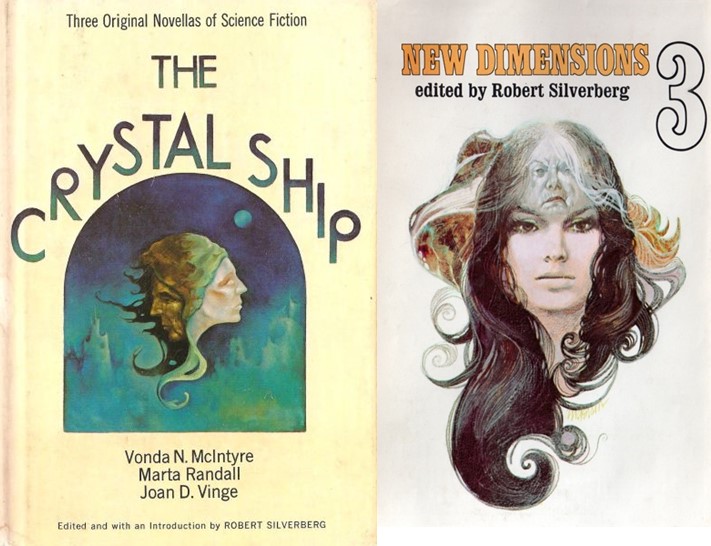 The Crystal Ship cover by Mike Mariano
The Crystal Ship cover by Mike MarianoNew Dimensions cover by Dennis Anderson
Screwtop was originally published in the anthology The Crystal Ship, edited by Robert Silverberg and published by Thomas Nelson in September, 1976.
Kylis is a spaceport rat, essentially a professional interstellar stowaway. A visit to the planet Redsun, however, ended her traveling days as she has been arrested and sentenced to penal labor at the Screwtop prison camp. Kylis strikes up a friendship, and eventually forms a family, with two other prisoners, Gryf and Jason, both of whom appear to be natives of Redsun.
Gryf is the product of tetraparents, a genetically crafted person who has the DNA of four separate parents. Meant to be highly intelligent, a glitch in the combination of DNA meant that he came out with strange coloring that set him apart from people. Gryf was also aware of Jason’s identity as a major philosophical author, which he shared with Kylis, although asking her not to let Jason know that they knew.
Focusing on Kylis, McIntyre depicts the horrors of the work camp. The throuple forced to the schedule set for them by the powers that be, represented in the camp by a guard called the Lizard. When their time allows it, they can seek solace in each other and form a family for themselves. This time almost makes their shifts working bearable.
The work is difficult. Screwtop is located on Redsun’s southern continent, which appears to be an uninhabited wilderness. Their job is to mine for geothermal energy, which is used to power the more massive and populated northern continent, where Gryf, Jason, and the majority of the prisoners are from. Naturally humid and hot, the mining process is even hotter and dangerous if precautions aren’t taken.
Once McIntyre establishes her setting and the characters’ relationships to each other, she is able to more fully explore the dynamics of the prison. Kylis reaches out to another woman prisoner, Miria, in a manner which may cause undue attention to be brought to her group. The Lizard approaches Kylis to extort not only sexual favors, but the implicit desire to have a child by her. The strength and purpose being in a supportive relationship with Gryf and Jason is demonstrated to have negative implications and it can be used against them.
In many ways, Screwtop feels as if it could be a prison story set anywhere, without the need for the science fictional elements. Kylis could merely be a runaway, Jason a dissident, and the workforce a regular mine. However, Gryf’s situation as the product of tetraparents becomes an important plot point. Although not fully explored, partly due to Kylis’s role as a narrator, his science fictional origin and upbringing, and his rebellion against it, focuses the story in him in the later pages as it becomes clear that his parents know of his whereabouts and may have the wherewithal to affect his release. More importantly, his way of dealing with the reality in which he finds himself is based on his unique situation.
Both Screwtop and The Girl Who Plugged In focuses on individuals who are trapped by other people, Kylis has more agency that P. Burke and the relationship Kylis has with Gryf and Jason, although not based entirely on reality of knowledge of the others, is a more authentic relationship than the one between Isham and Delphi. Similarly, McIntyre does not place a distance between the story and the reader by the expedient of having her narrator a participant rather than an observer.
The cover for Screwtop was painted by Maren. The cover for The Girl Who Was Plugged In was painted by Peter Gudynas. At only 136 pages, this volume is the shortest in the Tor Double series.
 Steven H Silver is a twenty-one-time Hugo Award nominee and was the publisher of the Hugo-nominated fanzine Argentus as well as the editor and publisher of ISFiC Press for eight years. He has also edited books for DAW, NESFA Press, and ZNB. His most recent anthology is Alternate Peace and his novel After Hastings was published in 2020. Steven has chaired the first Midwest Construction, Windycon three times, and the SFWA Nebula Conference numerous times. He was programming chair for Chicon 2000 and Vice Chair of Chicon 7.
Steven H Silver is a twenty-one-time Hugo Award nominee and was the publisher of the Hugo-nominated fanzine Argentus as well as the editor and publisher of ISFiC Press for eight years. He has also edited books for DAW, NESFA Press, and ZNB. His most recent anthology is Alternate Peace and his novel After Hastings was published in 2020. Steven has chaired the first Midwest Construction, Windycon three times, and the SFWA Nebula Conference numerous times. He was programming chair for Chicon 2000 and Vice Chair of Chicon 7.
Book Review: The Knight and the Moth by Rachel Gillig
I received a review copy from the publisher. This does not affect the contents of my review and all opinions are my own.
 The Knight and the Moth by Rachel Gillig
The Knight and the Moth by Rachel Gillig
Mogsy’s Rating: 4.5 of 5 stars
Genre: Fantasy
Series: Book 1 of The Stonewater Kingdom
Publisher: Orbit (May 20, 2025)
Length: 400 pages
Author Information: Website | Twitter
I confess I had my doubts when I started this one. After all, my first experience with Rachel Gillig’s work, One Dark Window, was not the most positive. That book left me cold with its confused themes and scattered direction, yet the author’s strong writing and the premise of her latest novel intrigued me enough to give her another shot—and I’m glad I did. The Knight and the Moth delivered a beautiful story that features a clearer narrative, compelling characters, and a gothic romantic tone that simply clicked with me in a way her previous series hadn’t.
The novel opens by transporting readers to the haunting, isolated grounds of Aisling Cathedral, where six nameless girls have served as Diviners ever since being rescued as foundlings by the abbess. Revered as soothsayers, Diviners undergo a dangerous water ritual to interpret the future from visions received through dreams induced while they are nearly drowned. Among them is Number Six, once known as Sybil Delling, a young woman who has spent nearly the past decade enduring this process for the benefit of those traveling to Aisling seeking wisdom. Now nearing the end of her service, she and her five sister Diviners are looking forward to their lives of freedom once they leave the cathedral, until an unexpected visit from the “Boy King” Benedict Castor III throws everything into chaos.
Benedict, newly crowned and still in his late teens, has come for a reading to see what lies ahead for his reign. Among his retinue is his loyal knight, Rodrick “Rory” Myndacious, whose open contempt for the Diviners’ rituals immediately grates on Six. Her suspicion proves justified when she catches the king and Rory stealing water from the cathedral’s sacred spring, but instead of turning them in, she strikes a deal: in exchange for her silence, they must take the Diviners out on the town for one final night of revelry before their time at Aisling ends. Yet soon after this outing, things take a darker turn when the Diviners start disappearing, one by one. Fearing that something far more sinister is at work, Six flees the cathedral with Rory’s help, hoping to buy some time while she works to locate her missing friends.
Although romantasy is arguably its main selling point, where The Knight and the Moth truly stood out was in its immersive atmosphere and world-building which felt both eerie and mythical. The setting of Aisling Cathedral, where the Diviners are cloistered, is one that casts a gothic shadow over the early chapters, with its abbess and cryptic rituals shrouded in secrecy. The young women, who go by their numbers One to Six, have had their identities erased and their eyes covered, the better to train them to a life of obedience and reading the Omens. Besides each other, they only have the cathedral’s sentient gargoyles for companionship. But as if all this weren’t intriguing enough, it’s the hints of an even deeper magical ecosystem that intrigued me, particularly the supernatural creatures called sprites that populate the world. Though their appearances were brief, they added a wild, almost elemental energy to the setting, and I hope their lore will be further explored in the next installment.
With regards to the romance, the relationship between Six—AKA Sybil—and Rory is one that simmers quietly in the background while the story’s main events play out, and that’s just the way I like it. Not too slow and yet not so strong that it overwhelms the central plotline, it unfolds with natural chemistry between the two characters. Not quite a “hate to love” romance, theirs is a dynamic which begins with mutual disdain but gradually shifts into something more intimate and vulnerable, and while the sparks don’t fly right away, by the time they do, the emotional payoff is worth the wait.
I also want to note how rare it is to find a book where the side characters shine just as brightly as the protagonists. Sure, Sybil and Rory are the ones who carry the story, but in The Knight and the Moth, we have a supporting cast that’s every bit as unforgettable. Maude, an older knight who serves as both mentor and near-maternal figure to Benedict and Rory, steals every scene she’s in with her quiet competence and unwavering composure—grace that she even extends to Sybil. On his part, Benedict, or Benji to his friends, reveals he is so much more than his youth, displaying surprising depth while he struggles to live up to a crown he barely understands. And then there’s the gargoyle, Sybil’s childlike guardian who follows her from the cathedral and becomes equal parts comic relief and emotional anchor. Together, this group of characters create a rich network of relationships that elevate this novel far beyond a simple romantasy.
In sum, what a huge difference from my first run with Rachel Gillig! Where One Dark Window gave me the impression of stumbling around in the dark, The Knight and the Moth felt more like a confident step forward. Featuring themes that were more focused, characters who were more grounded, and a more memorable story overall, the book managed to balance atmosphere, mystery, and heart without losing its way. For readers who enjoy slow-burn character arcs and layered world-building with just a touch of gothic romance, this is an easy recommendation. I’m genuinely excited to see where this series goes next.
![]()
![]()
Multiverse 8 Snippet 4
Here is a snippet from the story Rolling Tide of Darkness:
Normal 0 false false false EN-US X-NONE X-NONE MicrosoftInternetExplorer4 /* Style Definitions */ table.MsoNormalTable {mso-style-name:"Table Normal"; mso-tstyle-rowband-size:0; mso-tstyle-colband-size:0; mso-style-noshow:yes; mso-style-priority:99; mso-style-qformat:yes; mso-style-parent:""; mso-padding-alt:0in 5.4pt 0in 5.4pt; mso-para-margin:0in; mso-para-margin-bottom:.0001pt; mso-pagination:widow-orphan; font-size:11.0pt; font-family:"Calibri","sans-serif"; mso-ascii-font-family:Calibri; mso-ascii-theme-font:minor-latin; mso-fareast-font-family:"Times New Roman"; mso-fareast-theme-font:minor-fareast; mso-hansi-font-family:Calibri; mso-hansi-theme-font:minor-latin; mso-bidi-font-family:"Times New Roman"; mso-bidi-theme-font:minor-bidi;}
UO5-16 Destroyed Hyperbridge Star System, Upsilon Sector
The first Necron-Xeno alliance convoy arrived in the destroyed star system with the usual explosion of expended energy as they exited hyperspace.
There were twelve ships in the convoy; they immediately sent out four cruisers to scout ahead of them. The rest of the task force then reoriented and set sail for the neighboring star system. It would take a few hours to cross to a point where they could jump into hyperspace once more.
Hazel Irons III was awake upon their arrival. The second generation clone was eager to get started. She knew there was a ticking clock; she needed to prove herself to her queen before an ansible transport arrived and the link to the alliance was established.
She also needed to set her hooks into the sector quickly. She was aware that their partners would no doubt be sending their own expedition. After all, they had been the ones to send the first two Preserver ships and find the partial hyperbridge to the virgin sector.
Her lips quivered in a smirk. Well, virgin to her queen for the moment. But like many virgins facing invasion, it would not be a virgin for much longer.
Soon the rather small and mostly unpopulated sector would be conquered and added to the collective. It would become a place for the alliance to grow more ships and fighters for the war to consume the galaxy. It would be a new unknown front against the Federation forces in the Tau sector.
All of that had to wait, however. She had a mission to perform. To do that, she had to push and exercise her limited initiative to dig her hooks into the sector as quickly as possible.
Once the Necron and AI navigators were ready, the ships jumped into hyperspace once more.
~///*\\\~
UR34DP-17 Empty Star System -Necron Cryptorium Preserver II
Cerberus, the Guardian of Tomorrow, stomped through the hidden base’s alabaster and black marble corridors to the command center.
He didn’t need to move in haste but did so because of the urge to do something, even if it was little.
“Report,” he barked, red eyes glowing with anger and purpose.
“Ship arrival detected,” a Necron voice whispered.
“Multiple ships detected,” another voice stated.
“Passive sensors are too far out to get a definitive identity,” the first voice whispered.
The knight paused and turned to the Caretaker as she gently laid a hand on his arm as if to brush past him. She glided into the room and then paused.
“Defense is my domain,” he warned.
“So be it. If we are in need of defense, you will of course be in command. But for the moment, we continue to hide.”
“Agreed,” the knight commander growled.
~///*\\\~
Hazel noted that there was no attempt to contact them upon arrival. That was irritating. She had been warned that the base was hidden. “Olly olly in free,” she whispered.
She saw the Necron ship captain turned to her.
She shrugged. “Worth a shot,” she joked. He did not react to her attempt at levity.
“Tough crowd,” she said as she looked around the room. “Have we established that there is no one else in the star system?”
“Confirmed,” a Necron sensor tech reported.
She looked to the captain. “May I suggest we transmit our IFF and any codes to get the Cryptorium to report its presence?” she asked mildly.
The Necron ship captain went over to his throne and tapped in a command. After a moment, a pulse could be seen echoing out from the flagship in a wave. A second pulse of information followed a moment later.
Attempting to make contact with the Cyptorium was important in the grand scheme of things, Hazel noted. The question was would they reveal their presence?
~///*\\\~
The Caretaker was on hand when the signals came in. The first identified the ships as from the alliance; the second was a command to contact the ships. That would of course reveal their location within the star system. “It has been confirmed. They are friendly and are aware of our presence,” she said with a look to the knight.
The rest of the council had been woken from their stasis slumbers and were present.
“Do you concur that they are not a threat.”
“They are not a threat … for now,” the knight ground out, clearly unhappy with anyone knowing of their location.
~///*\\\~
The ruling council was wary of the order to reveal themselves. Instead, they bounced a signal off of several rocks to hide their location.
The bounces delayed the conversation. It was ultimately in their favor; other than the order to reveal themselves, the newcomers did not have any other codes or a message from the Gravemind or Guiding Intelligence.
~///*\\\~
The Suspension Bridges of Disbelief
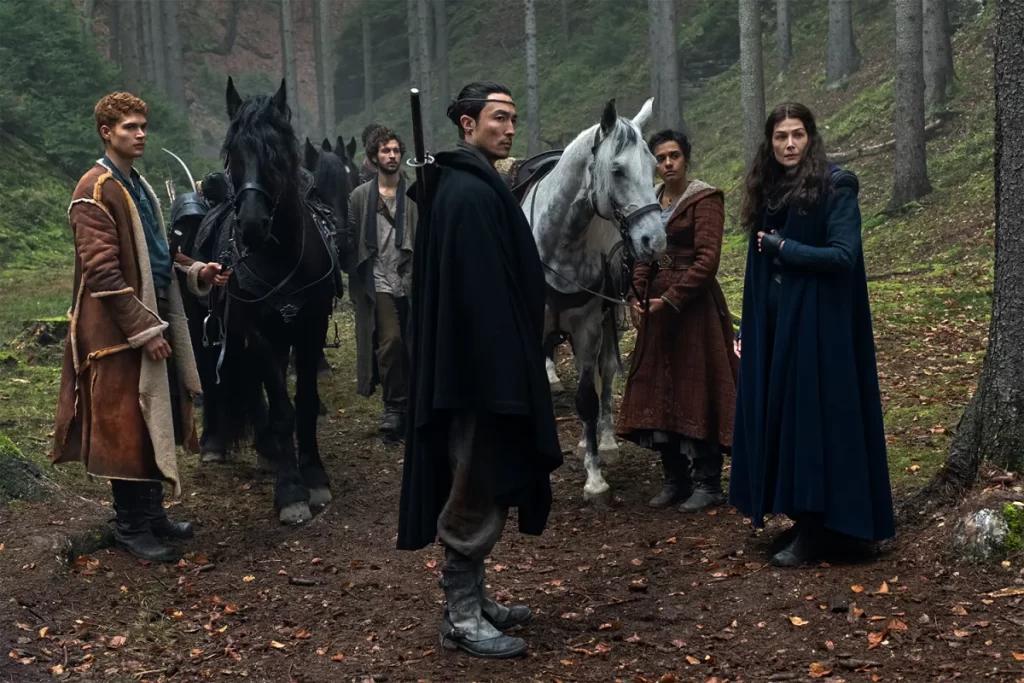 A friend and I have been watching The Wheel of Time adaptation on Amazon. Both of us expressed surprise not at the open casting, which we agree is wonderful, but at how that production choice plays out in small hamlets like Rand al’Thor’s “home town” of Two Rivers. After observing that every possible racial group is represented in this isolated, insular mountain community, my friend had an epiphany.
A friend and I have been watching The Wheel of Time adaptation on Amazon. Both of us expressed surprise not at the open casting, which we agree is wonderful, but at how that production choice plays out in small hamlets like Rand al’Thor’s “home town” of Two Rivers. After observing that every possible racial group is represented in this isolated, insular mountain community, my friend had an epiphany.
“I had to remind myself,” said my friend, “that if I suspend disbelief to accept that there’s magic in this world, then I might also have to suspend my disbelief in genetics.”
But isn’t it curious, how difficult this can be? The addition of magic in the Robert Jordan universe does not imply the generalized suspension of basic science, but the casting choices made in populating the Two Rivers absolutely does. Surely, under normal conditions, a group of people who initially look very different and then happily intermingle and intermarry over several generations would soon produce a population exhibiting mostly blended rather than outlying traits?
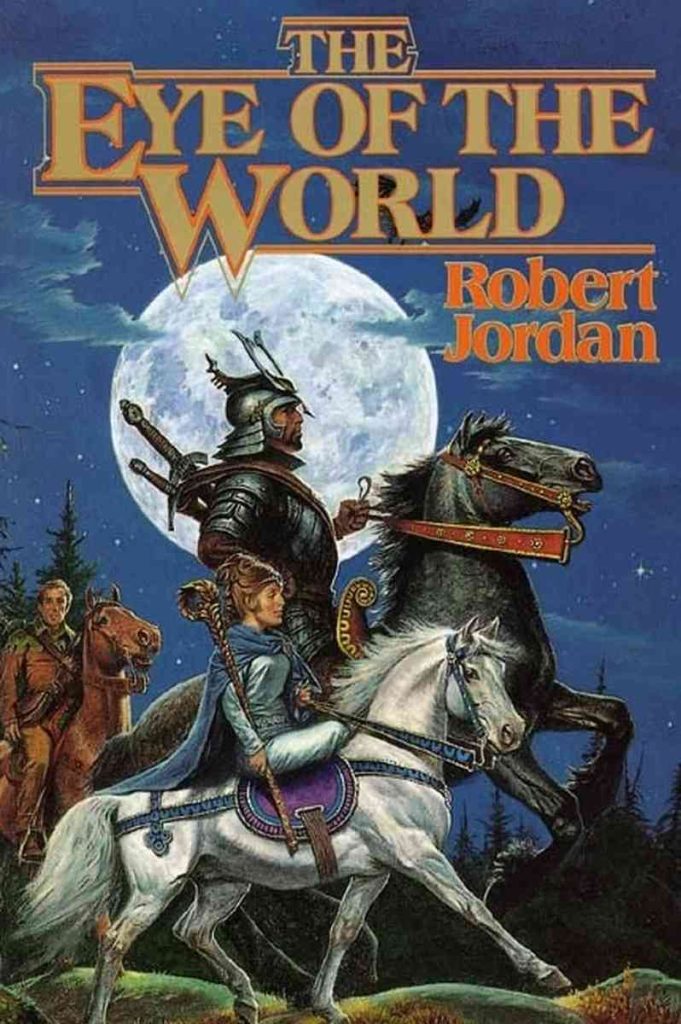 So, if genetics is getting tossed out the window, what’s next? Photosynthesis? The electron constant? Algebra?
So, if genetics is getting tossed out the window, what’s next? Photosynthesis? The electron constant? Algebra?
I once had a housemate who professed a hatred of musicals, both on stage and on film. He explained that he simply couldn’t get around the idea that when people feel a ton of emotion, they break into song. I thought (but did not quite say) that that’s exactly when people are most likely to spontaneously burst into song.
 Pro or con, musicals mark another instance where we either go along for the ride, suspending our disbelief when our heroes start warbling and trilling –– also when a brass band kicks in out of nowhere, playing (let’s say) “Seventy-Six Trombones”––or we cross our arms, huff and puff, and complain that musicals “aren’t realistic.”
Pro or con, musicals mark another instance where we either go along for the ride, suspending our disbelief when our heroes start warbling and trilling –– also when a brass band kicks in out of nowhere, playing (let’s say) “Seventy-Six Trombones”––or we cross our arms, huff and puff, and complain that musicals “aren’t realistic.”
But what is? Howard Shore’s exceptional score for The Lord of the Rings has nothing to do with realism. The Fellowship of the Ring is not accompanied on its journey by a traveling orchestra –– and if it were, wouldn’t we throw up our hands and declare the film to be entirely unbelievable?
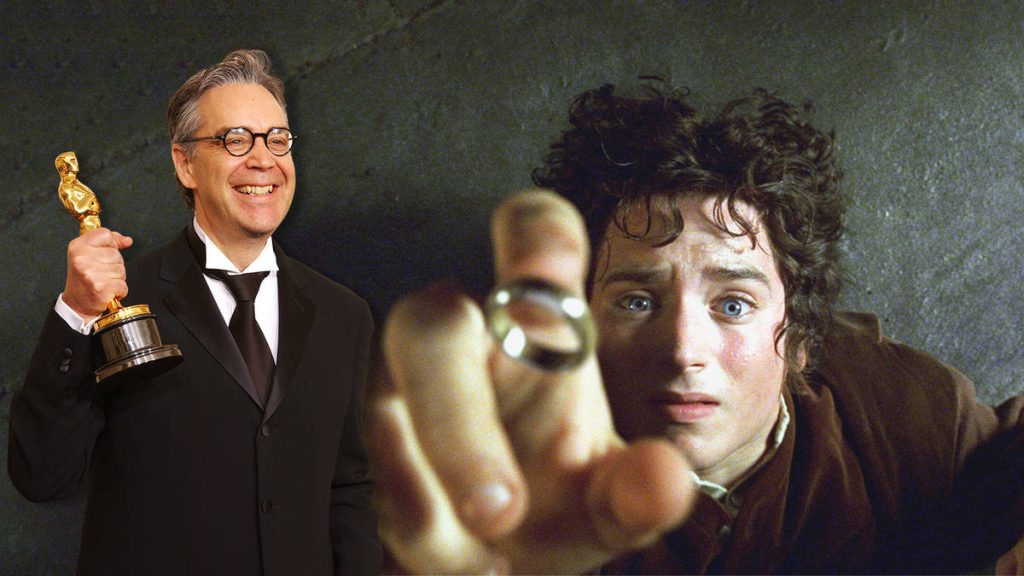 The easiest stunt to pull off when requiring readers or viewers to freeze-frame their disbelief is to offer up only a single element that’s not of this world. Lorrie Moore does exactly this in I Am Homeless if This is Not My Home (winner of the 2023 National Book Critics Circle Award) by asking us to accept that her hero’s deceased ex-girlfriend might want to embark on one final post-mortem road trip, bantering like a boss all the way. Everything else (well, almost everything else) is essentially normal, right down to the tarmac, the songs on the radio, and said girlfriend’s steady rate of decay.
The easiest stunt to pull off when requiring readers or viewers to freeze-frame their disbelief is to offer up only a single element that’s not of this world. Lorrie Moore does exactly this in I Am Homeless if This is Not My Home (winner of the 2023 National Book Critics Circle Award) by asking us to accept that her hero’s deceased ex-girlfriend might want to embark on one final post-mortem road trip, bantering like a boss all the way. Everything else (well, almost everything else) is essentially normal, right down to the tarmac, the songs on the radio, and said girlfriend’s steady rate of decay.
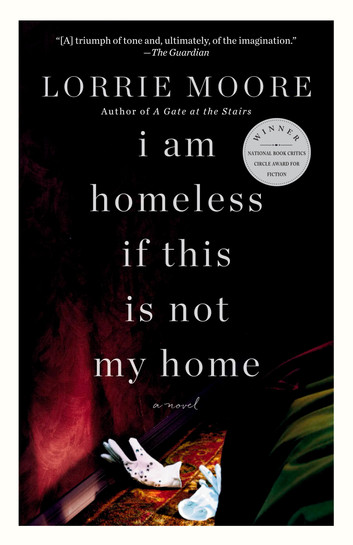 Sometimes, one encounters a writer who appears to be sticking to the world as it is, but elements of dream or otherness are allowed to intrude, often with unpredictable results. The reader is themselves suspended, learning with every new-turned paged to be watchful, wary of what is real and what is not. Kathleen Jennings takes this approach in Flyaway, where disbelief is not so much suspended as it is actively cultivated. John Crowley’s Little, Big proceeds in much the same fashion.
Sometimes, one encounters a writer who appears to be sticking to the world as it is, but elements of dream or otherness are allowed to intrude, often with unpredictable results. The reader is themselves suspended, learning with every new-turned paged to be watchful, wary of what is real and what is not. Kathleen Jennings takes this approach in Flyaway, where disbelief is not so much suspended as it is actively cultivated. John Crowley’s Little, Big proceeds in much the same fashion.
But in general, suspension of disbelief works best in an additive sense. The story-teller allows for some new power, something that piggy-backs on the world already known. For example, in The Fifth Season, N.K. Jemisin allows for “orogenes” who control stone, a supernatural power built on what we already accept of geology and plate tectonics. Similarly, in Marvel Comics lore, the character known as Storm can control wind and weather –– but her powers depend explicitly on phenomena with which we are already familiar.
 Even the finest works of the fantastic have their awkward moments. In HBO’s Game of Thrones, there’s a scene in which the Onion Knight, Ser Davos Seaworth, breaks young Gendry out of prison and sets him in a rowboat. When Gendry faces the wrong way, Ser Davos asks, “Have you ever been in a boat?” and Gendry answers, “No,” but the very next moment, he’s feathering the oars like a pro. All I can do is shake my head. Rowboats require practice: you’re facing the wrong way while steering, and each oar (long and heavy) functions independently. In the ocean, as Gendry is, every single wave impacts the oars differently. I’m forced to say that, as written, this charming, comic scene swan dives right over the cliff of believability. If poor Gendry has never rowed, all the royal blood in the world won’t help him. He’ll never get past the breakers, much less to the supposed safety of some far and distant shore.
Even the finest works of the fantastic have their awkward moments. In HBO’s Game of Thrones, there’s a scene in which the Onion Knight, Ser Davos Seaworth, breaks young Gendry out of prison and sets him in a rowboat. When Gendry faces the wrong way, Ser Davos asks, “Have you ever been in a boat?” and Gendry answers, “No,” but the very next moment, he’s feathering the oars like a pro. All I can do is shake my head. Rowboats require practice: you’re facing the wrong way while steering, and each oar (long and heavy) functions independently. In the ocean, as Gendry is, every single wave impacts the oars differently. I’m forced to say that, as written, this charming, comic scene swan dives right over the cliff of believability. If poor Gendry has never rowed, all the royal blood in the world won’t help him. He’ll never get past the breakers, much less to the supposed safety of some far and distant shore.
And yet, I’m perfectly happy to believe in three-eyed ravens and the faceless men of Bravos.
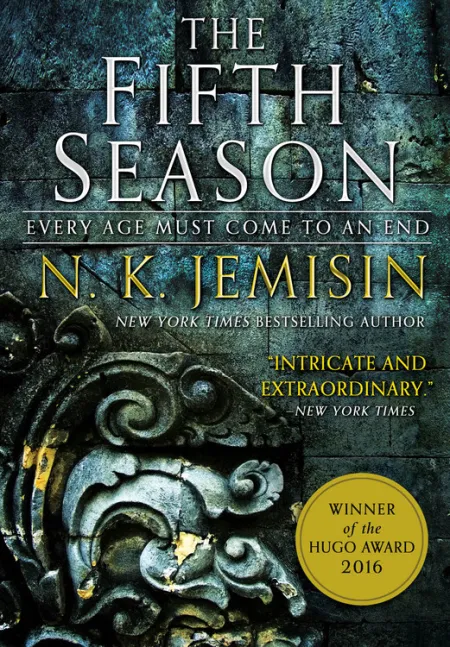 Perhaps the loftiest trick of all in the juggling game of disbelief is to remove some element that we have trouble imagining living without. Gravity, for example. The relative hardness and density of metal. Inertia. Strip away even one those three, and then try writing up a believable sword-fight. Good luck to ya’.
Perhaps the loftiest trick of all in the juggling game of disbelief is to remove some element that we have trouble imagining living without. Gravity, for example. The relative hardness and density of metal. Inertia. Strip away even one those three, and then try writing up a believable sword-fight. Good luck to ya’.
And this, perhaps, is why it is easier, when watching Amazon’s The Wheel of Time, to accept the One Power and way-gates and trollocs than it is to believe in a remote, mountainous outpost where the population covers just about every color of the human rainbow.
Magic, we buy (in part because it’s great fun to do so).
But reality?
Reality bites.
Onward.
Mark Rigney is a writer and long-time Black Gate blogger. His work on this site includes original fiction and perennially popular posts like “Adventures in Spellcraft: Rope Trick.” His new novel, Vinyl Wonderland, dropped on June 25th, 2024. Reviewer Rich Horton said of Vinyl Wonderland, “I was brought to tears, tears I trusted. A lovely work.” His favorite review quote so far comes from Instagram: “Holy crap on a cracker, it’s so good.” A preview post can be found HERE, while his website lives over THERE.
Spotlight on “The Will of the Many” by James Islington
In The Will of the Many, at the elite Catenan Academy, a young fugitive uncovers…
The post Spotlight on “The Will of the Many” by James Islington appeared first on LitStack.
Book Review: The Everlasting by Alex E. Harrow (by Swiff)

Book links: Tor Publishing Group | Goodreads
ABOUT THE AUTHOR: Alix E. Harrow is the Hugo Award winning author of The Ten Thousand Doors of January, The Once and Future Witches, and various short fiction. Her Fractured Fables series, beginning with the novella A Spindle Splintered, has been praised for its refreshing twist on familiar fairy tales. A former academic and adjunct, Harrow lives in Virginia with her husband and their two semi-feral kids.
Publisher: Tor Books (Expected October 2025)
Formats: Audiobook, ebook, paperback
REVIEW: The Everlasting is my favorite of Alix’s stories since the release of The Ten Thousand Doors of January. It is a love story told across a thousand years, again and again. It’s a story of ambition and ruthlessness, of bravery and cowardice, of servitude and freedom. It’s a lovely, emotional, and endearing read, showcasing Harrow’s wit and insightful observations common to her stories.
Told from an alternating second-person narrative (!) that echoes through time (!!), the story brings to mind Ken Grimwood’s classic Replay in all the best ways. Stories of this particular genre seem like they’d be especially difficult to execute, but Harrow does a remarkable job at harvesting all the seeds planted throughout the story.
I’m not going to divulge any further plot details as that would spoil some of the fun. Trust that the book is full of surprises and runs the full gamut of emotions, so prepare yourself for an immersive reading experience.
Sorry for cutting this short, but I have to go. If you need me, I’ll be waiting beneath the yew tree…
COVER REVEAL: God's Junk Drawer by Peter Clines (by Mihir Wanchoo)

Official Author Website
Pre-order God’s Junk Drawer over HERE
Read Fantasy Book Critic’s review of Ex-Heroes
Read Fantasy Book Critic's review of Ex-Patriots
Read Fantasy Book Critic’s review of Ex-Communication
Read Fantasy Book Critic's review of Ex-Purgatory
Read Fantasy Book Critic's review of Ex-Isle
Read Fantasy Book Critic's review of The Junkie Quatrain
Read Fantasy Book Critic's review of 14
Read Fantasy Book Critic's review of The FoldRead Fantasy Book Critic’s review of The Broken Room
Read Fantasy Book Critic Interview with Peter Clines
Read Fantasy Book Critic’s second interview with Peter Clines
Read I See Dead People by Peter Clines (Guest Post)
We are big fans of Peter Clines at Fantasy Book Critic and it's been a while since we have gotten to read some of Pete's fabulously twisted tales. So it is with great pleasure that we got news of the cover for God's Junk Drawer.
Peter's newest standalone book is being released by Blackstone Publishing on Nov. 11th 2025 and here's the snazzy cover for it featuring the talents of James T. Egan (Bookfly design).

Pre-order God’s Junk Drawer over HERE Add God's Junk Drawer on Goodreads
Official Book Blurb: Welcome to the Valley …
Forty years ago, the Gather family—James, his daughter Beau, and his son Billy—vanished during a whitewater rafting trip and were presumed dead.
Five years later, Billy reappeared on the far side of the world, telling an impossible tale of a primordial valley populated by dinosaurs, aliens, Neanderthals, and androids. Little Billy became the punchline of so very many jokes, until he finally faded from the public eye.
Now, a group of graduate astronomy students follow their professor, Noah Barnes, up a mountain for what they believe is a simple stargazing trip. But they’re about to travel a lot farther than they planned …
Noah—the now grown Billy Gather—has finally figured out how to get back to the Valley. Accidentally bringing his students along with him, he’s confident he can get everyone back home, safe and sound.
But the Valley is a puzzle—one it turns out Noah hasn''t figured out—and they’ll need to solve it together if there’s any chance of making it out alive.
Pulling from Earth’s past, future, and beyond, Peter Clines has created a complex, dangerous world, navigated by a dynamic ensemble cast, and a story that is thrilling as it is funny and heartfelt.
Can Your Hear Me Now?

This post is all about audio.
Maggie Audio
This Kingdom is getting an audio release, and we are being asked about our input. We R Excite!
If you have a favorite narrator who is suitable to voice a 25 year old woman and does great male voices, lay your suggestions on us in the comment section. We are looking for a new to us narrator, so not someone who has voiced a lot of our work.
Inheritance Audio
The Inheritance Audio is in the works. We are right now looking at a split narration for Ada and Elias. This adds additional hoops for us. Because of the scheduling issues, the ebook and print copy of The Inheritance will likely come out a lot earlier than the audio. It’s hard to book narrators on shorty notice. But have no fear, the audio will be released.
AI Audio
On May 13th, The Guardian published an article regarding Audible use of Ai voices.
“We are bringing new audiobooks to life through our own fully integrated, end-to-end AI production technology,” reads the announcement on Audible’s website. There are two options for publishers wishing to make use of the technology: “Audible-managed” production, or “self-service” whereby publishers produce their own audiobooks with the help of Audible’s AI technology.
Both options will allow publishers to choose from more than 100 AI-generated voices across English, Spanish, French and Italian to narrate their books. AI translation of audiobooks is expected to be available later in the year.
We will not be picking up that option. All of our narrators are human. This is why it takes so long for audio to come out sometimes.
Rogan POV audio
We are aware that Rogan POV didn’t make it into GA edition. No worries, we are working on it and hopefully you will be getting the extras with the next couple of releases.
The post Can Your Hear Me Now? first appeared on ILONA ANDREWS.
Multiverse 8 Snippet 3
Sitrep: Starting to ramp up on writing Shelby 10.
This snippet is from the story The Tour, a Federation story:
Normal 0 false false false EN-US X-NONE X-NONE MicrosoftInternetExplorer4 /* Style Definitions */ table.MsoNormalTable {mso-style-name:"Table Normal"; mso-tstyle-rowband-size:0; mso-tstyle-colband-size:0; mso-style-noshow:yes; mso-style-priority:99; mso-style-qformat:yes; mso-style-parent:""; mso-padding-alt:0in 5.4pt 0in 5.4pt; mso-para-margin:0in; mso-para-margin-bottom:.0001pt; mso-pagination:widow-orphan; font-size:11.0pt; font-family:"Calibri","sans-serif"; mso-ascii-font-family:Calibri; mso-ascii-theme-font:minor-latin; mso-fareast-font-family:"Times New Roman"; mso-fareast-theme-font:minor-fareast; mso-hansi-font-family:Calibri; mso-hansi-theme-font:minor-latin; mso-bidi-font-family:"Times New Roman"; mso-bidi-theme-font:minor-bidi;}
Agnosta
Chief Warrant Officer 2 Nohar Yellow Tiger Rajestan was nervous but did his best to fight the jitters down. He’s been in stasis pods before; this would be no different.
He just didn’t like confined spaces. The pod was bad. But the coffin was a temporary evil; it meant he’d be asleep for the journey ahead.
He still wasn’t certain what possessed him to take on the journey. Orders obviously, though with his rank he could have gotten out of them had he wished. General Anhueser’s personal request and reminder that it could help him with his ongoing fear of travel too. His therapist Maddy had also been on that wagon.
He glanced at the nurse. She looked impatient.
“I’m going,” he muttered.
She indicated the pod.
“Okay, okay,” he muttered as he climbed in.
“It’s like taking a nap, sir.”
“I’m a warrant. Don’t call me sir.”
“Sorry, Warrant … ah, Chief Warrant Officer … um …”
“Chief is fine. Not that we’ll know each other long,” he growled. The nurse smiled and began to hook him up. A jack was attached to his implants to plug him in and monitor his vital signs. Additional sensors were attached for backup purposes.
“Can you leave the door open until I’m asleep?”
“That’s against protocol,” the nurse said with a frown. A doctor out of his range of view cleared his throat. She looked up. “… But I guess so, Chief.”
“I know; I sound like a kid,” the cat muttered, ears back. His fur was up. He knew he was anxious.
“Just try to relax, sir. The drugs can’t take hold until you relax,” the nurse said, voice dropping into a calming lilt.
He growled something but she kept moving. He could smell her since she was so close. Humans tended to like perfume and this one liked jasmine. It was a bit cloying, clogging his nostrils. He fought the urge to sneeze.
“Just close your eyes and picture a nice sunny day. Taking a nap in a hammock on a porch maybe …”
He let his eyes droop and then close.
“That’s good. Now, I’m attaching a Somnetic Delta Wave Inducer,” the nurse said. “It will help you fall asleep.”
Nohar grimaced but didn’t reject that. He had used the device a few times when anxiety had gotten the better of him and he’d needed to sleep. It was better and safer than drinking himself to sleep to avoid the nightmares. He felt the device being placed on his forehead. After a moment, there was a slight click sound and then he started to feel lethargic.
He heard the nurse say something in an approving voice and then nothing more.
---#---
Major General Pasha 101001 looked out the window as the shuttle continued to climb to orbit. As missions went, this one was better than most. It was also long overdue. He just wasn’t certain about it.
He had pitched the idea of an inspection tour to the Admiralty several years ago. He had thought it had been forgotten until a decision on high had come up. He’d been a bit wistful about seeing home again and had hinted about taking an assignment there or retiring. Apparently, that had made certain parties volunteer him for the mission.
His basic inspection tour had been bloated. The navy had provided one of their super fast couriers but they’d tagged their own IG inspector onto the mission. He’d been fine with that until the Marines had coughed up two of their own IG officers.
His staff had been pared down from seven to five including his AI Jack. One of his staff was First Lieutenant Angie Samara from the army AG office too, replacing his adjunct. That had been irritating. Not that he really needed someone to hold his bag.
Officers from Inspector General’s office from any branch of government were generally not well received. They were very much into nitpicking down to spot-checking the number of nuts and bolts in containers.
Pasha thought of his mission as showing the flag, going around and showing off to the public as well as the military personnel that the military did care about the individual bases and so on.
Of course before each arrival and supposed colonoscopy, the commanders of the AO would be busy scrambling to get everything neat and tidy. The rank and file might complain about such antics but it served a purpose. Well, correction, several purposes, Pasha thought. One was to put everyone on notice that they were checking in and cared about getting shit right. The second concept tied into the first; it was that if they were going to try something stupid, think twice, big brother was watching.
The third they all knew about already was for publicity and morale. The troops felt better when they knew that the bosses actually cared about them and their welfare. Listening to some of the troops and seeing them show off their skills was also important.
The senate Military Affairs Committee had gotten wind of the mission and sent their own representative from the senate IG office. He had yet to meet her.
He’d put his foot down at any additional people when he’d heard the mutterings about other government departments wanting to tag their own people in. The last thing he needed was a love boat with a couple dozen petty bureaucrats. Besides, the little courier could only handle eight passengers. Going with more people would have meant a bigger ship, which would have been slower and would have defeated the purpose of doing it fast.
Fast hell, he thought as the shuttle’s main engines cut off and they drifted to the station in orbit of the moon. He’d be lucky if the mission was completed in four years. He was expecting delays that would run them to five easy he mused darkly. He glanced over to his crew. They were all looking out the windows. He snorted to himself and then closed his eyes and pretended to sleep. Better to meditate than get drawn into some last-minute paperwork or some such nonsense.
---#---
The Lost World
You may have heard about the recent statements made by Netflix CEO Ted Sarandos, a man who combines all the best qualities of Dr. Jack Kevorkian and Alaric the Goth in one natty package. As reported by Variety on April 28th, the streaming mogul declared that the precipitous decline in in-person movie attendance which began several years ago and has reached near-catastrophic proportions in the years following COVID is easily understandable; indeed, it communicates a clear message:
What does that say? What is the consumer trying to tell us? That they’d like to watch movies at home, thank you. The studios and the theaters are duking it out over trying to preserve this 45-day window that is completely out of step with the consumer experience of just loving a movie.
Relegating the theater experience that has defined the industry (to say nothing of wider American culture) for the past nine decades to the dustbin of history, Sarandos shined a dazzling light on our murky cultural landscape:
Folks grew up thinking, I want to make movies on a gigantic screen and have strangers watch them and to have them play in the theater for two months and people cry and sold-out shows… It’s an outdated concept.
Thank you, Ted, for clearing that up for us. I’m sure Scorsese and Coppola and Lee and Tarantino and Bigelow are happy to have the benefit of your sage counsel.
Lustily chomping his cigar and aggressively pounding his fist on the table (okay, I made that part up), the Netflix boss further said that the decline of movie theaters doesn’t “bother” him. He would be bothered, he added, if “people stop making great movies.”
Now I’ve seen the typical Netflix product, and you’ll forgive me if I think that Mr. Sarandos wouldn’t know a great movie if Bette Davis walked up with one in a steel film can and broke his nose with it.
 Fasten your seat belt, Ted — it’s going to be a bumpy night!
Fasten your seat belt, Ted — it’s going to be a bumpy night!
If you sense a certain bitterness in my remarks, you’re right, and that sourness stems less from my distaste for Mr. Sarandos and his cavalier attitude towards something that I love than from my suspicion that he’s right, damn it. Much as I might regret it, it does appear that the kind of moviegoing experience that many of us have taken for granted for our entire lives is rapidly — and probably irrecoverably — becoming a thing of the past.
Some hard-hearted realists might say that mourning the decline of moviegoing (as in actually going to the movies) is as silly, pointless, and socially and economically regressive as bemoaning the fact that the buggy-whip industry isn’t what it used to be.
As a practical matter, that might be so, but I still feel entitled to mourn the loss. Why?
To be moved, whether you are frightened or thrilled, brought to tears or to laughter, is an experience that you can certainly have in your living room, alone or with one or two other people, but that’s a fundamentally different experience than feeling those same emotions in a room filled with many other people, in a place dedicated (I almost said consecrated) to undistractedly watching the movie and nothing else, a unique space where no one (ideally) is chatting, looking at their phone, constantly moving around the room, or pausing the action while they stroll to the bathroom or go to the door to get the Grubhub order.
The darkness, the size of the space and the close physical proximity of so many other people, the scale of the screen and the depth of the sound, the sustained, even relentless nature of the experience (to say nothing of the fact that because you’re leaving the house to do it, it’s something that actually requires a degree of planning), and yes, the cash outlay — even if the movie itself is a negligible piece of fluff, these factors all combine to make the in-person experience itself larger and more weighty.
Of course, every difference I just mentioned is, for an increasing number of people, a bug and not a feature. In that, Ted Sarandos is right. More and more people do seem to prefer streaming at home over the older way of seeing movies. I know, I know, who has the time anymore? Who has the money? And what about the kids? Anyway, how many movies are good enough to warrant going through all the hassle?
I can’t argue with any of these objections; I feel their force myself. And yet I think we’re going to lose something precious if going to the movies becomes some sort of boutique experience limited to a few large urban areas. Sarandros himself pointed to this as a likely future, saying, “If you’re fortunate enough to live in Manhattan, and you can walk to a multiplex and see a movie, that’s fantastic. Most of the country cannot.” (I don’t know where Ted lives, but apparently he pictures the rest of the country as some sort of vast Hooterville where people wander among the cornstalks, desperate for entertainment.)
The “concept” dismissed as “outdated” by Ted Sarandos has played a major part in my life ever since I can remember. My parents loved movies and “going to the show” was one of my commonest experiences growing up; we literally did it all the time, and I continued to go on my own or with friends as I got older. I have countless memories connected with seeing movies in actual theaters or at the drive-in, and the record of my moviegoing forms a kind of alternate history of my life; it’s probably the same with you. Here are a few of my random moviegoing memories, and they’re all the more powerful because they’re not just mine; they’re collective memories shared in one way or another with the hundreds of people who were with me in the theater at those moments, and with the millions who experienced the same feelings when they saw the same movies in their own hometown theaters.
(You will notice that all of these movies are from the 60’s and 70’s. I have had memorable theater experiences in just about every decade of my life — Dead Ringers, anyone? — but these came to my mind first. Given my topic, it’s probably no surprise that I’m feeling excessively nostalgic right now.)
Summer, 1975. On vacation, visiting my cousins in Texas, we went to see something called Jaws. American movies and culture would never be the same. The shriek of delighted terror and terrified delight that burst from my fourteen-year-old mouth when that corpse’s head popped out of the submerged boat and scared the bejeezus out of Richard Dreyfuss, and me, and all the people surrounding me… well, I didn’t even hear myself, because my ears were too busy ringing from the identical sound that had just come from everyone else.
Quentin Tarantino has said that Jaws is the greatest movie (as opposed to the greatest film) ever made, because it delivers all those quintessential screaming/laughing movie pleasures more perfectly than anything else that’s ever been on the screen. If you were there in 1975, you can only agree with him.
Spring, 1979. My buddy Eddy’s mom said she would take us to the show to see a horror movie. She loved horror movies; she had already taken us to the drive-in to see The Brood and The Corpse Grinders. That’s what I call a great mom. When my mom (also a great mom) heard that Ruth was going, she said that she would join us. I told her that she really didn’t want to do that; the movie we were going to see was called Dawn of the Dead and it was not a Vincent Price campfest, which was what she was expecting from a horror movie. “You don’t understand, Mom — this movie has zombies that eat people!” She tsk-tsked me and insisted on coming along.
Five minutes in, in an apartment building infested with the living dead, a woman spots the shambling corpse of her husband; she runs up to him and embraces him, whereupon he takes a huge bite out of her neck as the blood gushes by the gallon. That woman was no more shocked than my mom, who grabbed her purse, stood up, and walked out of the theater. “I told you!” I shouted as she exited.
Spring, 1968. My mom gave me a day off from school. Why? She was going to drive me into Los Angeles so we could see 2001: A Space Odyssey at the fabled Cinerama Dome. (I told you she was a great mom.) She had told my teacher the day before that it would be “very educational.” The enormous curved Cinerama screen, the eye-popping special effects and overwhelming sound, the rapt enthrallment and utter bafflement of the audience — it has all stayed with me to this day.
As stunned people stood around on the sidewalk afterwards, there was a steady chorus of “What does it mean? Do you know what it means?” “I know what it means!” I recklessly piped up. As all those pairs of adult eyes focused on my seven-year-old self, I realized that I should have kept my big mouth shut. I didn’t know what the movie meant; I only knew that I had just had one of the greatest days of my life, and that I loved my mom.
Fall, 1979. At the Cinerama Dome again, my friend Sutton and I arrived at the last moment to see one of the first showings of Apocalypse Now, and the only seats left were in the first couple of rows. The Dome’s screen was eighty-six feet wide and thirty-two feet high; from our seats, it was like crouching at the foot of Mont Blanc. When the movie opened with a napalm strike, I felt like every millimeter of my optic nerves were on fire, and during the “Ride of the Valkyries” helicopter strike I crouched in my seat to keep from being eviscerated by a mortar round or decapitated by a helicopter blade, and I knew that everyone else in the theater was doing the same thing, even those who had more rational seats than we did (I told Sutton we should have left home earlier).
Every person in the audience knew that they were seeing something beyond the realm of the normal; we were witnesses to an outrageous, crazily ambitious, magnificent once-in-a-lifetime folly that no one there would ever forget. It was probably my supreme experience at the movies, and it wouldn’t surprise me if a lot of the people who were there that night almost forty-six years ago look back and think about it that way too.
One more. Fall, 1977. The movie is, believe it or not, Race for Your Life, Charlie Brown! This time Sutton and I left in plenty of time to get decent seats, and anyway, we didn’t have to drive as far to get to the theater. (The Cinerama Dome usually didn’t book Charlie Brown movies.) We had a Saturday with nothing to do and the only thing showing was this Peanuts movie. Well, why not? The theater was full to overflowing with kids — I didn’t see an adult in sight. We two high-school boys were apparently the oldest people present. Clearly this mediocre cartoon was a golden opportunity for parents to dump their spawn for a couple of hours and have a little time for… well, other stuff.
Things held fairly steady until the lights went down, and then pandemonium reigned. You’ve read Lord of the Flies? It was like that. The air was instantly full of flying popcorn boxes and other trash, and the soundtrack was drowned out by an insane cacophony of laughs, shrieks, yells, catcalls, arguments, profanities. You couldn’t see the movie; you couldn’t hear the movie. The aisles were filled with kids running up and down, falling, rolling, jumping, kicking, crashing. One kid sitting several rows forward took umbrage at something the urchin sitting directly in front of us said or did and came flying from his seat, and jumping astride the offender, pinned him in place and started whaling on him as the surrounding kids cheered; it was like having a ringside seat at Ali-Foreman. We were too stunned to intervene (others quickly did), and we bolted for freedom as soon as the final credits rolled, happy to escape with our lives, but I have never forgotten that kiddie matinee; it permanently darkened my view of human nature and blighted my belief in the possibility of building anything lastingly good in this world. And all it cost me was, what? Two bucks and a little gas money? Now that’s what I call a bargain.
Beat that, Ted Sarandos.
Thomas Parker is a native Southern Californian and a lifelong science fiction, fantasy, and mystery fan. When not corrupting the next generation as a fourth grade teacher, he collects Roger Corman movies, Silver Age comic books, Ace doubles, and despairing looks from his wife. His last article for us was Writ in Water: V.E. Schwab’s The Invisible Life of Addie LaRue
7 Author Shoutouts | Authors We Love To Recommend
Here are 7 Author Shoutouts for this week. Find your favorite author or discover an…
The post 7 Author Shoutouts | Authors We Love To Recommend appeared first on LitStack.
Get it While You Can: Manly Wade Wellman’s Cahena Going Out of Print
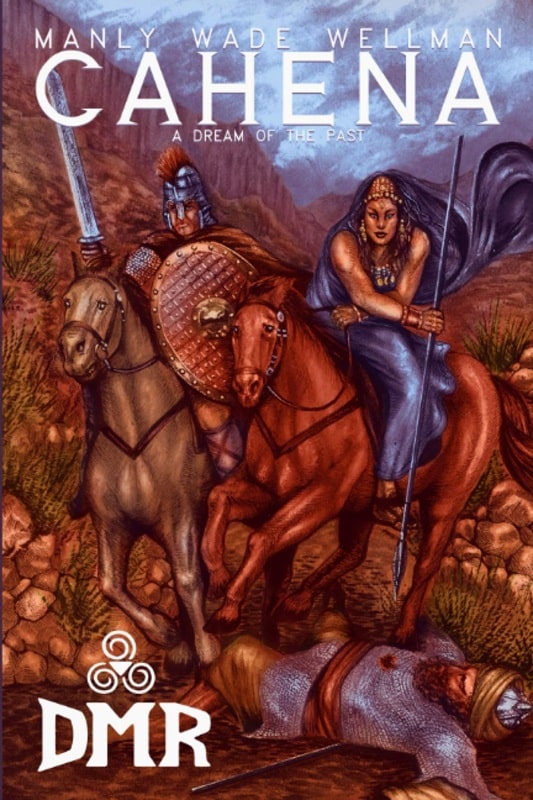

Cahena by Manly Wade Wellman (DMR Books, November 1, 2020). Cover by Lauren Gornik
I’m hearing reports that Manly Wade Wellman’s final novel Cahena, out of print for nearly 35 years until DMR released a handsome new edition in 2020 with a striking cover by Lauren Gornik, is on the verge of going out of print again.
Cahena is an overlooked gem in Wellman’s distinguished catalog. A historical novel with fantasy elements, it tells the tale of the legendary Berber queen who lived in the 7th Century in North Africa, and led her people against the Romans and later Muslim invaders. The Cahena, as she was known, was said to be both a sorceress and prophetess, and she led an army forty thousand strong in a valiant struggle to save her beleaguered people.
DMR’s rights to the book expire this month, and at the end of May it will not longer be available. Morgan Holmes says that with this final novel, “Wellman went out on top.” If you’re a Wellman fan, or a fan of quality adventure fiction, grab a copy while you can. Don’t wait another thirty-five years for the next reprint! Order directly from DMR Books here.
The Wycherleys (by Annaliese Avery)
Young Adult Fantasy / Romantasy
At the age of 17 Aurelia should be entering magical society and finding a match, but 150 years earlier her Mathilde Wycherley was cursed and since then the curse has travelled down through the generations…and it has landed on Aurelia. She is a pariah, not a single witch will join with her and without a “tether” her magic will fade away.
Jules Nightly is a descendent of the witch who cursed Mathilde but desperate times call for desperate measures and in an effort to hold onto her magic without a tether Aurelia enters into a forbidden bargain with him.
––––––––––––––––––––––––––––––––––––––––––––––––––––––––––––––––––––––––––––––
Fans of Morrigan Crow (The Tales of Morrigan Crow) or Leovander Loveage (Sorcery & Small Magics) will love this book. I hesitate to say this but it’s another book for the Harry Potter refugees. If you need a little magic in your life, this is your book.

Multiverse 8 Snippet 2
Sitrep: Some minor changes to the Bast cover. I'll get on that project probably tomorrow.
On to the snippet!
Normal 0 false false false EN-US X-NONE X-NONE MicrosoftInternetExplorer4 /* Style Definitions */ table.MsoNormalTable {mso-style-name:"Table Normal"; mso-tstyle-rowband-size:0; mso-tstyle-colband-size:0; mso-style-noshow:yes; mso-style-priority:99; mso-style-qformat:yes; mso-style-parent:""; mso-padding-alt:0in 5.4pt 0in 5.4pt; mso-para-margin:0in; mso-para-margin-bottom:.0001pt; mso-pagination:widow-orphan; font-size:10.0pt; font-family:"Times New Roman","serif";}
Time ZoneRita Geffen was having a normal day or thought she was. She came out of her building and put her ear buds in. She headed to her scooter to head to work but then stopped when she noticed everything was frozen.
She smiled, thinking it was some sort of flash prank. She’d heard about them played years ago. She thought of the people as mannequins or like a mime. But when she went over to touch a woman walking midstride, the woman didn’t react.
Even her dress was fluttering and the wind was blowing her hair. It remained out like that.
She looked around and saw a plane in the sky, just frozen in the air. Off to her right, she saw a distant helicopter. Again, just frozen. She spun in place and saw other things just frozen there. A flock of pigeons were nearby; one was pooping on someone. She could see the poop just hovering in the air.
“What the hell is going on?!?” she demanded loudly.
~~~~~~
Rashid Bashar had been working in the tunnels underground. His phone had no signal and of course no internet. When he came out to check on things, he found that the phone was still losing battery power faster than it should. It kept trying to find a signal. He had to put it on plane mode to keep it from draining the battery. He was confused about it until he looked around and saw the bustling market frozen in place.
“Allah …?” he asked in disbelief, eyes wide in surprise. It was near dusk and everything was just frozen. He didn’t understand. Nothing made sense.
~~~~~~
There was an eerie silence; it was so quiet it was scary. Like the calm before a storm, like when all of the insects went silent just before something happened. There was no sounds of birds, no insects, no machinery, no people talking, nothing at all. Darren Monroe realized how much you just tuned out all of the ambient noise until it was gone.
“God, this is freaky,” he muttered.
He hadn’t understood what was going on. He still didn’t. It was 9 am and just … stuck. The sun didn’t move, the people didn’t, nothing did except him. He’d tried to take a nap and hoped it was just a bad dream, but when he opened his eyes, the world was still frozen. Even Max, his old buddy, was frozen in his dog bed licking his privates. The scene made him snort. Someone should make a sculpture of it or some such, he thought.
He pulled out a generator and plugged in an old radio from the back of his closet. But of course it didn’t work. He finally got a clue and tried his old CD collection. Those worked thankfully.
He didn’t have many; he’d inherited them from his uncle and just stuck them in a box because his mother had insisted that they’d be valuable some day. Now he was glad he’d kept them. The same for the DVDs.
Just hearing sound again helped him feel a little better. The situation was freaky, and he didn’t understand what the hell was going on but hearing the Top Gun album helped him somehow.
~~~~~~
Sergeant Ezra Falk of the Israeli army made his way through the apartment and saw everything and everyone just stuck in place, frozen in time. When he got outside, he looked around to see birds, planes, cars, people, all things that had once been in motion were just frozen still. Things that were falling were just stuck.
“Hello? Anyone in there?” Ezra asked as he waved a hand in front of the woman’s frozen face.
“Freaky, it’s like no one is breathing … and who the hell am I talking to again? You can’t hear me!” He turned around and looked to see everyone and everything just stuck in time.
“Does anyone know what the hell is going on?” he demanded.
There was just silence. No sounds of anything at all.
“This has got to be the weirdest damn dream I’ve ever had,” he muttered as he stormed back inside.
~~~~~~
Tammi Cabot started to make some headway on what was going on. It didn’t make sense but some rules were starting to become apparent to her.
Like that other people were frozen but if she got close to something, it began to move. The first time that happened it had startled her. She hadn’t expected it. But then it froze again.
She pictured a bubble around her, some sort of field that was allowing stuff to move.
She tried various ways to interact with stuff and then people. It didn’t work with the people though, at least not the same as the inert items. She wasn’t certain as to why.
One thing she did find was that once the item moved out of whatever bubble was around her it just stopped again.
She tried tracing a paper airplane she made, moving along with it. That was fun.
“Either this is a dream or God is nuts,” she muttered as she wandered around to see the sights and take pictures. She might as well make the best of the situation.
~~~~~~
Debbi Jordan was hysterical as she looked around at all the frozen people and things. She thought that she was dead. “I’m in hell? This is hell?” she cried going through some hysterics until she began to hiccup. She finally hit the bottle and got drunk. She eventually passed out and never woke up again.
~~~~~~
Darren made a hell of a mess while eating a tub of ice cream and watching a DVD. He thought of a scene and snorted and then snickered. It reminded him so much of the first Home Alone movie. “Hey, I’m eating junk and watching smut, Someone better stop me!” he caroled loudly. As expected no one answered.
He started to get headache and thought it was eye strain. He shut off the DVD and got up to pee. As he walked down the hallway, he started to feel a little better.
In the bathroom, he peed and then hit the lever to flush the tank. Water actually went down but the tank didn’t refill. He played with the lever and then took the tank top off and fiddled with the innards, totally confused as to why it wasn’t filling.
He finally gave up after a moment and decided to deal with it later.
He opened the medicine cabinet and took an aspirin for the headache and then downed some water to wash it down and then went to eat.
~~~~~~
Lance Stewart made his way home and moaned when he saw his wife frozen. He studied her for a long moment and then gently touched her. The whole world was frozen; he didn’t know why. But he didn’t want to be alone.
~~~~~~
Tammi Cabot continued to record her video diary. She took tons of photos and video of people frozen in the air. She then dictated her thoughts, unsure why, or who would see it.
She spent a lot of time video recording strange stuff. It was amusing, and she started to look for the truly bazaar stuff.
~~~~~~
Darren went to sleep on his bed with his phone on his chest hoping it was all one bad dream. The alarm on the phone went off sometime later; He checked it hoping it was a call. He instead saw that it was a carbon monoxide detector. He was confused and rolled to the side feeling a bit disoriented.
It was still broad daylight outside. That confused him until he remembered the world being frozen. But that was a distant unimportant thing. He looked at the phone in his hand once more.
He’d set that app up at his mother’s nagging. He didn’t understand why it went off. His head hurt more and he was tired. He was very sleepy; however, it was a pain in the ass to sleep with it being broad daylight out.
He wasn’t going to go to sleep at all with his bladder full he realized. Well, it was time to do something about that he thought blearily.
He got up and coughed, and then he had to hold out a hand to steady himself to get down the hallway to the bathroom. Again, he noted that it was still daylight out. He held the phone in his free hand and wondered why he felt like he was hung over.
When he got to the bathroom, he looked out the window and saw that yes, everything was indeed still frozen still. He let out a long suffering sigh.
He unloaded his bladder again but this time he had nothing to flush tank when he hit the chrome lever. He grimaced in realization of that problem as the smell of his own urine wafted up to his nostrils. “Gonna have to plunge that or something,” he muttered as he got into the medicine cabinet and got another aspirin. He fumbled the bottle and lid but finally got one out. Of course several spilled on the counter, down the drain, and on the floor.
He didn’t care at the moment. He just wanted the pain to go away.
He popped the pill in and then took a swig of water from a bottle he kept on the counter. He used to have a cup for tap water but the damn ants had been all over it and groused him out. He leaned against the wall and wondered what the hell was wrong with him now.
~~~~~~
Name That Street
Before anything else: MAGIC TRIUMPHS is out from Graphic Audio today. Yay!
Gordon’s surgery went well. We got home safe yesterday and today he is in the home gym, working the shoulder as the doctor instructed. The doctor was pleased and saw no additional need to do anything beyond the expected scope of the surgery. Gordon was very put out yesterday because they did a nerve block and he couldn’t move the arm.
The first thing my husband did when I pulled into the garage is squint at the trashcans on the curb, left there since Monday was the trash day. I told him that I would take care of the trashcans, so I got out and headed for the recycling bin. I pulled it back behind the wall and here is my husband dragging the other trashcan back.
I made him coffee and bought yummy Krispy Creme doughnuts and got him a strawberry shake because his throat hurt. He did things like pick up the dog and pick up packages. Apparently, “a man has to do things” instead of sitting on the couch resting his arm in a sling like he is supposed to.
I stressed out a lot about the surgery. We came in at 7:00 am, as instructed, at 9:45 am they took him away, and I went into the waiting room, where the patients were represented by numbers on the screen. Each number had a color code that informed you what stage of the surgery the patient was at. It was supposed to be a short surgery. When I got there, his name had a green code meaning that he was in surgery. 10, 11, 11:30… Then I get a text. Surgery is starting. By 1:00 pm I was kind of a basket case and I bought some yarn I shouldn’t have bought in a moment of stress. I need to block Wendy’s Wonders.
Anyway, we are home and it’s back to the writing. And admin. So much admin.
I have a fun challenge for you. This is a rough sketch of an actual intersection in a major US city courtesy of Candice Slater. Some creative liberties were taken with the height of the building, but other than that, it is right out of Google Maps. It’s an interesting intersection, because there is a pancake restaurant in that red building on the left and an IHOP over there under the blue roof.
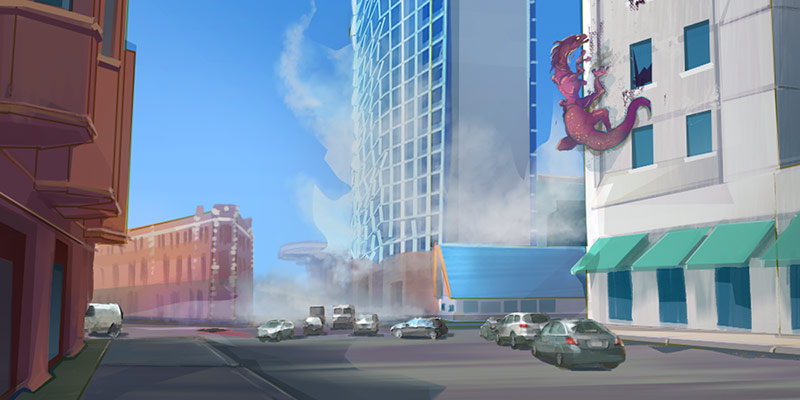
There are some clues in The Inheritance as the the general location. More clues will be give in the upcoming installment. The first person to recognize this intersection and name the cross street will get a character named after them in The Inheritance. The character maybe a hero or a villain. Comments on the blog only, please. Have fun!
Edit Mod R: Winners have found the answer, in approximately 15 seconds! Congratulations, JoAnne and Anton, sharing the prize! The Horde is unmatched, Interpol should either hire us or watch us, not sure hehe.
The post Name That Street first appeared on ILONA ANDREWS.
The Writer and the Boycott
 Image by Niek Verlaan from Pixabay
Image by Niek Verlaan from Pixabay
Good afterevenmorn!
Well, I’m talking boycotts again, as there is a lot of it going around. And they are absolutely kicking up all kinds of dust. This is great – making your voice heard with the only thing these companies seem to understand; their bottom lines. It’s not so great if you’re an innocent writer just trying to make a living who happens to be caught in the crossfire.
Some few writers like myself are trying to divest from unethical companies (I’m not going to name them, but we all know, right?). But we are quite few, and it’s only, at least in my case, quite a light boycott. My books are still available on sites I’d rather no be on, as I want to offer something for those readers who have no choice but to use that site. That’s the unfortunate thing a near monopolies like this. Some folks have no other option. I do have my books available in other places, too, and encourage folks to buy there instead if they can.
It is an unfortunate truth that writers are largely stuck with these behemoth companies. Many self-published or small press authors make (or made) quite a decent living selling through these companies, sometimes exclusively. Good for them, honestly. That’s great! Less great now, however. Buyers, you see, are also boycotting these large companies. And that spells trouble for writers.
 Image by Лариса Мозговая from Pixabay
Image by Лариса Мозговая from Pixabay
I’ve seen more than one post on social media of writers reminding readers that these big companies don’t really feel their absence, but we writers absolutely do. And they’re not wrong. When people stop buying books from one of the largest sellers of books, the folks who depend on that site to sell feel it first and hardest.
It’s not a an easy spot to be in. I’m incredibly proud of everyone who are now putting their feet down and refusing to give money to sites, and the people behind these sites who are actively making the world a harder place to be in. I’m also feeling for those who were making their livings by selling on the very sites that people are actively avoiding. It’s a tough situation all around.
 Image by PDPics from Pixabay
Image by PDPics from Pixabay
Before we go on, I do want to make a giant caveat to what I’m about to say next. I don’t make a living selling books on these sites. I don’t make a living selling books period. I’m a terrible marketer, and perhaps a mediocre writer, so I don’t make a living selling books. I’d really like to, and perhaps one day I’ll get there, but I do not currently. I work full time and am scraping by without having to rely on book sales. Everything I say here will probably feel hollow for those who are currently suffering for those who are caught in this fight.
With that said, I remain firmly on the side of the boycotters. I am also boycotting as much as I can. Book purchases are now made at the bookstore nearest me. It’s not always convenient, but a half hour walk to the shop is something that I’m willing to do in order to avoid using these sites. I don’t think readers should be guilted into abandoning their causes. I do think it’s up to us as writers to try and adapt to the changing landscape. There are a couple of ways to do this. Probably more, but if I do more than two, I’ll be writing this forever.
 Do not put all your eggs in one basket.
Do not put all your eggs in one basket.Image by Gerald Friedrich from Pixabay
The most important thing I think writers can do currently is diversify
Some sites have huge incentives for exclusivity. Make them the only site your book can be purchases or read from, and you get a bigger cut of the profits. It can be incredibly enticing. If possibly, avoid that temptation and put your books up on multiple sites – including your own. There are a lot of ways to create an online shop and start selling direct. It does require a lot more marketing work, as discoverability is a huge issue here.
But I do know book shoppers often are exposed to the marketing of these big sites, and then go hunting to see if the author is selling direct. This is especially since folks are being much more selective about where they source their goods and with whom they spend their money.
There is a further downside, and that is how bestsellers are counted. Personal sales don’t usually count towards the numbers. But if you care more about earning a living than making lists, then it’s not that much of an issue.
Plus there are other bookselling sites where you can sell, and those numbers will count.

Another thing to consider is a subscription model. This isn’t instead of diversifying, but in addition to. For those who are unaware of what this model means, essentially, that people will pay a small amount monthly in exchange for some exclusive content. There are quite a few companies that offer this service (for a cut, of course). The two big ones that I’m aware of are Patreon and Ko-Fi.
For both of these sites, you can set the monthly amount, and even charge different amounts for increasingly awesome exclusive stuff. This tiered subscription can be set to whatever amounts you wish. I know some folks who have subscription tiers at $20.00 a month or more. If you like, you can limit the number of those subscriptions, so you’re not spending all your time trying to fulfill your subscription obligations instead of writing. So perhaps you have a tier at $50.00, in which you provide a monthly handwritten letter, and an automatic awesome loot box with every book release a month, but only two slots for that tier. So you don’t end up spending a tonne of money and time getting those book boxes together and writing letters. The great thing about this is that you can structure it whatever way you want.
I have a Ko-Fi page (obligatory link here. That felt icky. Let’s move swiftly on). I chose it because they also offer an online shop, which has the option of selling to the general public or to one or more of your subscription tiers exclusively, and even an option to accept commissions if you want.
I am very limited on time and ability, as I work full time, so I know I don’t have a lot of time to create for my subscribers. For that reason, I’ve set the monthly amount very low ($1.00), and have only one tier. Subscribers get exclusive blog posts. They will be the only ones able to purchase the special editions of my books, when I get the time to create them (a special edition of The Dying God & Other Stories is currently in the works, with a subscriber exclusive cover and five all new full-colour illustrations). They also have first read of any of the serials I write. They were the first to read The New Haven Incident, and will be the first to read The Bear when I’ve finished writing it. They also get free recipes when I make something I feel is worth sharing. And I’m aiming to offer them free calendar print-outs with original artwork each year. It’s not much, because I cannot yet abandon the office job. Perhaps one day I will be able to, and I can start offering more to my subscribers.
I really like the functionality of Ko-Fi, and now use it as my shop, saving me the costs of hosting my own on my website. Other people choose Patreon because it has other features they find more convenient. I am a fan of being able to set a post as exclusive for a time period of your choosing before it becomes public. You have to do that manually on Ko-Fi.
 Image by christian schwartz from Pixabay
Image by christian schwartz from Pixabay
This isn’t to say that doing either of these things will go well for a writer. I am evidence of that. I don’t sell many books, and I don’t have many subscribers. Fortunate, then, I have full-time work, or I’d be in real trouble. I know that not everyone is fortunate enough to be in that position.
It’s a difficult journey, this writing thing, and should not be embarked on lightly. Boycotts are not making it any easier. We must muddle through as best we can in the weird, unstable world we find ourselves in. The important thing is not to give up. We need stories, perhaps now more than ever. So keep trying to find your way through. I’m here cheering you on. We can do it.
When S.M. Carrière isn’t brutally killing your favorite characters, she spends her time teaching martial arts, live streaming video games, and cuddling her cat. In other words, she spends her time teaching others to kill, streaming her digital kills, and a cuddling furry murderer. Her most recent titles include Daughters of Britain, Skylark and Human. Her serial The New Haven Incident is free and goes up every Friday on her blog.
Book review: Esperance by Adam Oyebanji

Book links: Amazon, Goodreads
ABOUT THE AUTHOR: Adam Oyebanji was born in Coatbridge, in the West of Scotland, and is now in Edinburgh, by way of Birmingham, London, Lagos, Nigeria, Chicago, Pittsburgh and New York. After graduating from Birmingham University and Harvard Law School, he worked as a barrister, before moving to New York to work in counter-terrorist financing in Wall Street, helping to choke off the money supply that builds weapons of mass destruction, narcotics empires and human trafficking networks. His first novel, Braking Day, was a finalist for the Canopus Award.
Publisher: DAW (May 20, 2025) Length: 432 pages (Kindle edition) Formats: Audiobook, ebook, paperback
Esperance hooked me from page one and didn’t let go. I mean, how could it? It opens with an impossible murder - a father and son drown in seawater inside their 20th-floor Chicago apartment (with no water tank around, floors dry, and nail scratches on the ceiling). A dead barracuda is just lying there next to them. For me, that’s the kind of opening that demands attention, and trust me, Oyebanji knows exactly how to keep it.
All of this somehow ties to a woman in Bristol who dresses and speaks like she walked out of the 1930s Nigeria, has and builds tech that shouldn’t exist, and is on a very specific historical scavenger hunt. Yeah, I’m in.
The pacing is perfect - the short chapters told from two points of view (Detective Ethan Krol and Abi) fly by quickly thanks to the right mix of action, mystery, and those oh-crap moments where everything shifts. The sci-fi elements are there, but Oyebanji doesn’t over-explain them, which somehow makes them even cooler. I found the twists top-tier, but your mileage may vary. Anyway, just when I thought I had things figured out, nope. With that said, it’s possible some readers won’t be crazy about police procedural elements, but since I love them, I had no issues here.
I also loved the dynamic between Hollie and Abi. Hollie is basically most of us. Abidemi, on the other hand, is an enigma - charismatic, dangerous, and inhumanly brilliant. Their relationship had the odd but interesting energy, and I loved how their interactions went from trust and suspicion and back.
Even the antagonist had motivations that actually made sense. There’s logic to their actions, even if their methods are, let’s say, a lot.
By the time I hit the final act, I was all in. The twists come fast, the revelations hit hard, and the ending is equally satisfying and unsettling. I feel it’ll stick with me. If you’re into Blake Crouch-style thrillers, Neal Stephenson-esque tech mysteries, or just a smart, fast-paced story that refuses to be predictable, Esperance is absolutely worth your time.




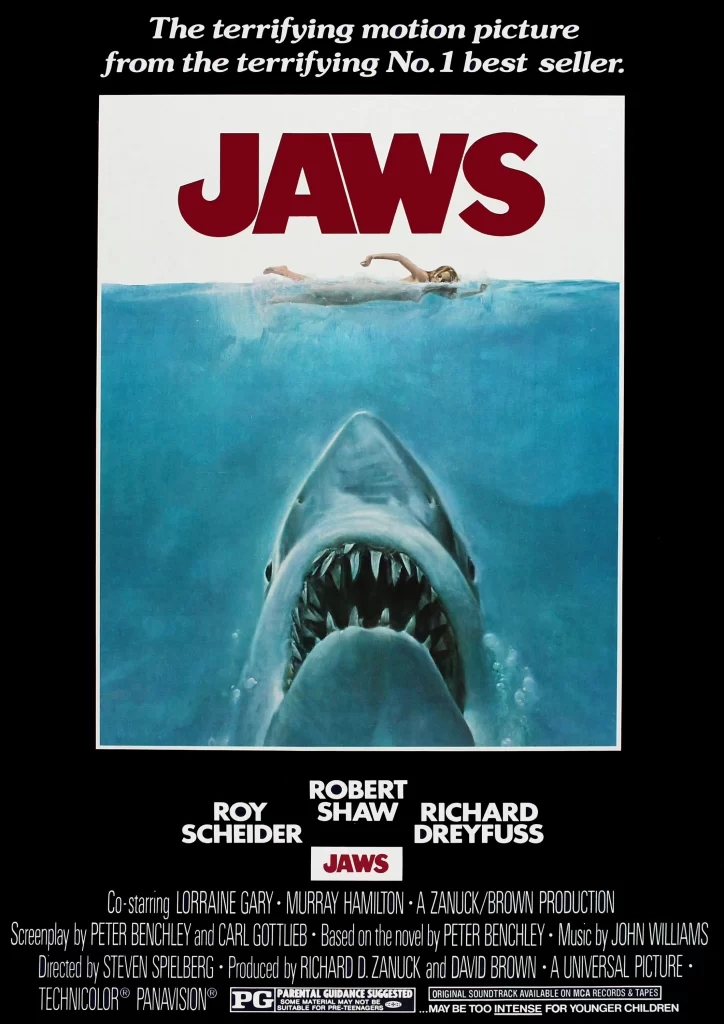
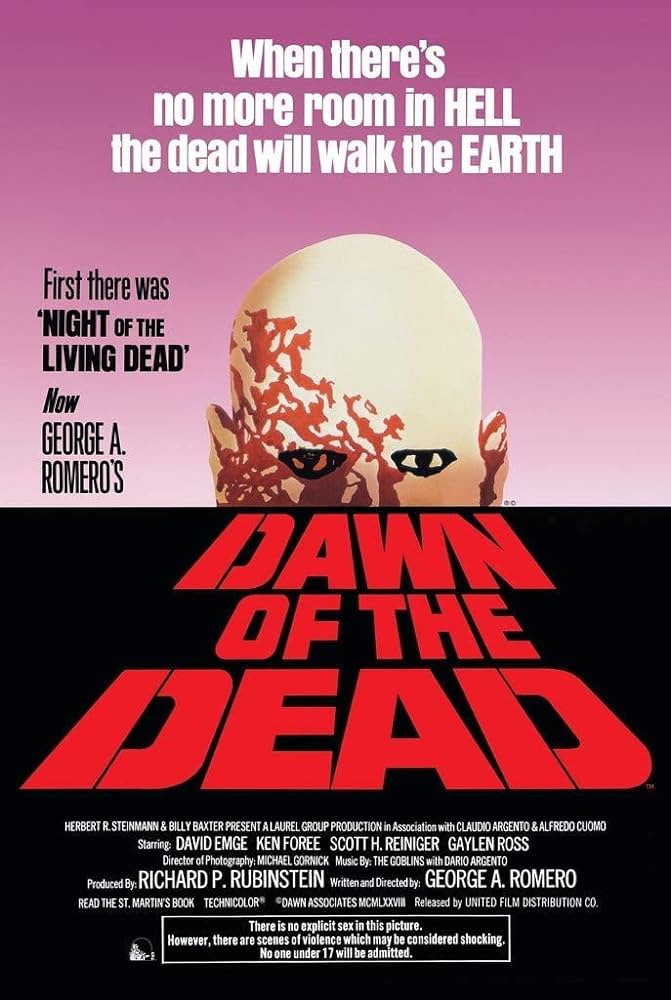
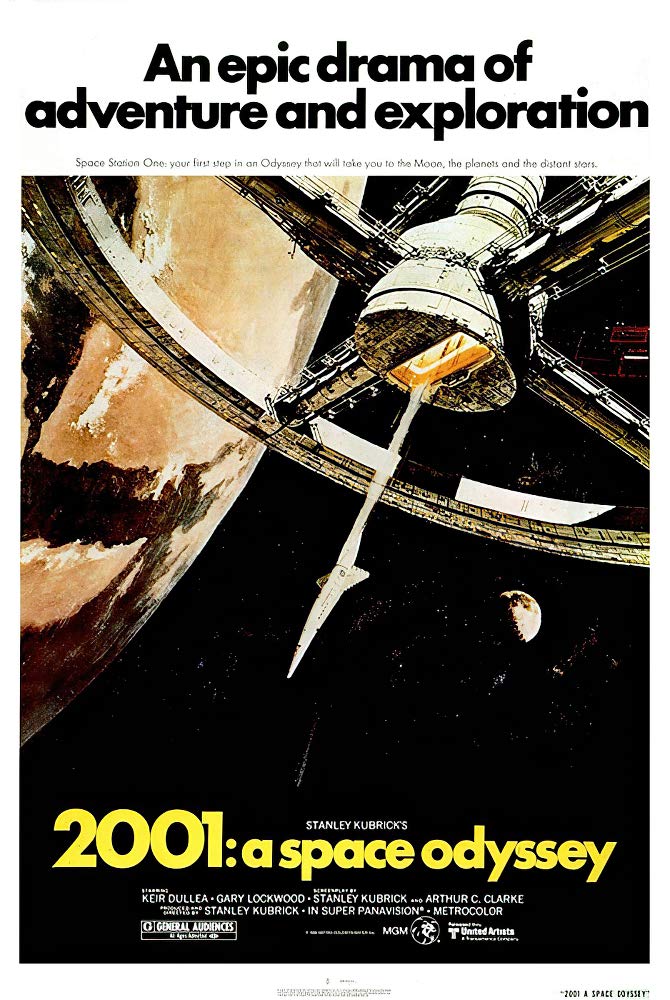
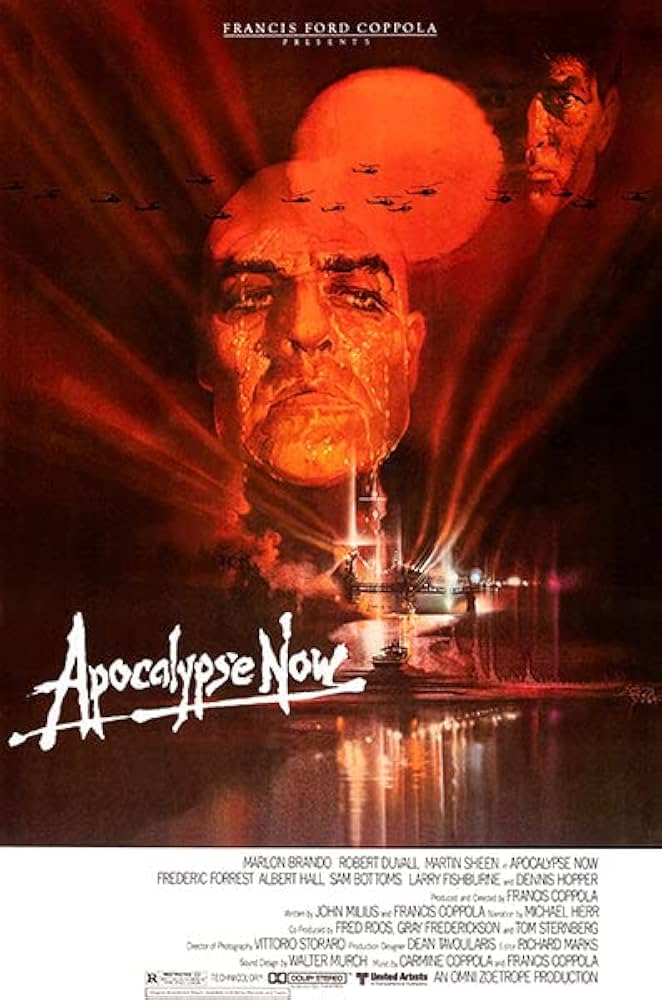
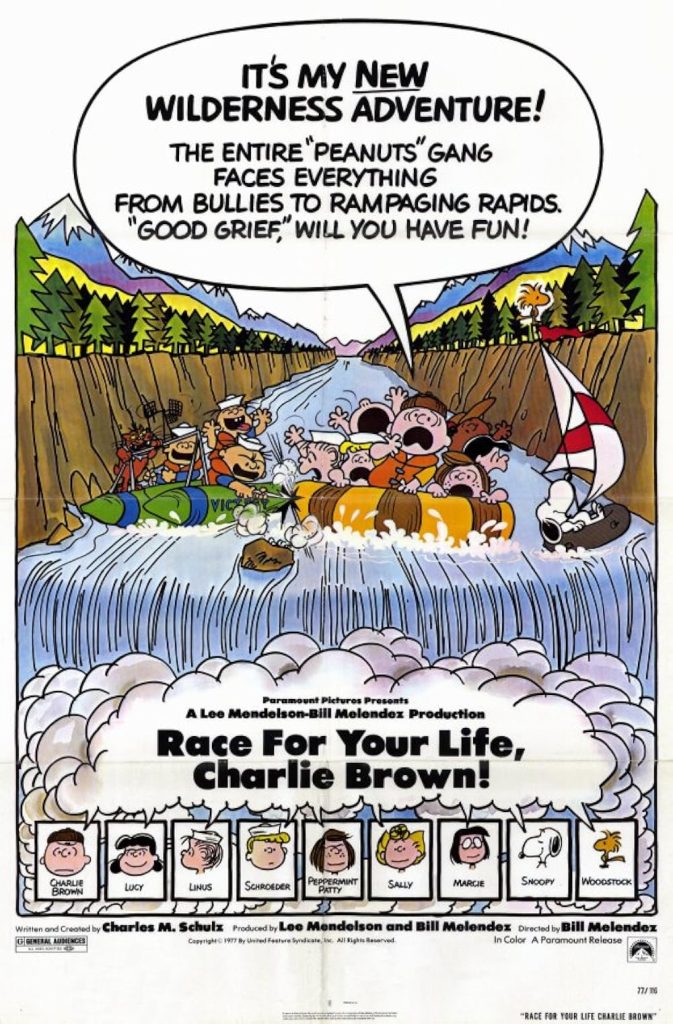


Recent comments